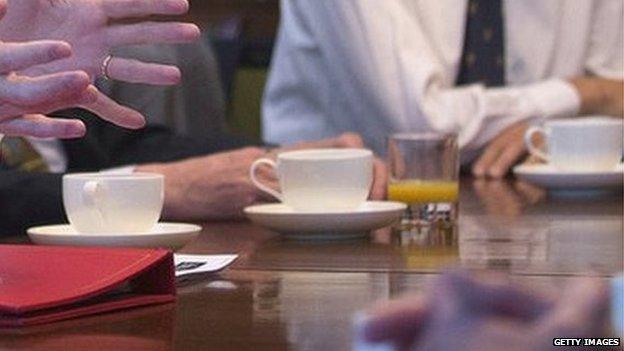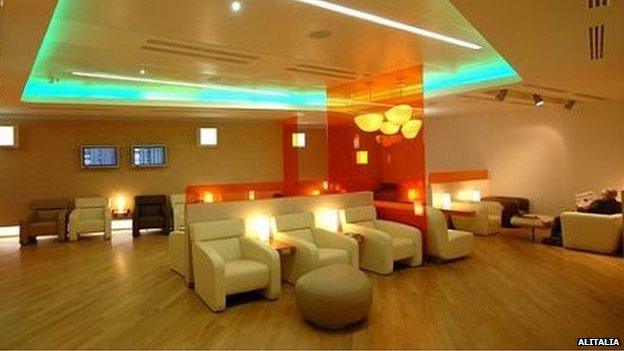Europe at risk of corruption from lobbying - report
- Published
Daniel Freund, from Transparency International: "Politicians must be accountable"
European nations urgently need new regulations to prevent governments from being unduly influenced by businesses and other special interest groups, according to a new report by the anti-corruption organisation Transparency International.
The advocacy group says most countries do not control lobbying practices, "allowing for nearly unfettered influence of business interests on the daily lives of Europeans".
According to the report,, external covering 19 countries and the EU institutions, the vast majority of states have no comprehensive regulation of lobbying, and lag well behind the United States and Canada in having systems to record contacts between lobbyists and policy-makers, government officials and politicians.
"There are serious conflicts of interest at play; and certain groups enjoy privileged access to decision-makers," the report says, resulting in "drastic and far-reaching consequences for the economy, the environment, social cohesion, public safety and human rights".
'Cooling-off'

Brussels has the second highest density of lobbyists after Washington DC, the report says
Cyprus and Hungary come out bottom of the rankings. While countries worst hit by the financial crisis, including Italy, Spain, Portugal and Greece fare badly too.
"There seems to be a connection between low accountability to citizens, low transparency, and how countries did in the financial and economic crisis over the last years," Daniel Freund of Transparency International told the BBC.
The United Kingdom is fourth on the list, one of only seven nations that have dedicated regulation covering lobbying.
But the report says the UK's regulations may only capture 1% of those actually lobbying officials, and only cover those trying to influence ministers and senior civil servants, not members of parliament, local councillors, or regulators.
Slovenia is top of the European league table.
It is the only nation that demands legislators must have a "cooling-off" period before they can take up lobbying after they leave office. Most countries do little to stop what is called the "revolving door" between political posts and lobbying jobs.
In Portugal half of all cabinet posts since the country became a democracy have been filled by former bankers.
So, the report says, "citizens and interest groups have little opportunity to know who is influencing public decisions, on what issues, and how."
'Astro-turfing'
Some lobby groups hire lawyers who say their actions for their clients should remain privileged and secret.

Favoured locations for meetings include an Italian airport lounge
Companies fund independent-sounding think-tanks, and lobbyists carry out "astro-turfing" - hiding behind front groups, so their actions have the appearance of being popular campaigns that spring from grassroots movements.
Favoured locations for informal meetings with government officials vary from country to country, Transparency International says:
In Hungary, companies often use private boxes at football matches
In Ireland, they prefer the coffee shop and bar in the parliament buildings
In Italy, a lounge is used at Milan airport where politicians wait for flights to Rome
Public trust
Brussels has the second highest density of lobbyists in the world after Washington DC, the report says.
It estimates the pharmaceutical sector has spent a minimum of €40m (£29m; $42m) per year lobbying European institutions, and the financial sector €120m a year.
The European Commission comes second in the overall ranking, having "fairly robust transparency and integrity measures", including a voluntary register of all lobbyists.
However, the European Council, where national ministers and leaders meet to agree EU-level policies, comes second from bottom. A register of lobbyists is yet to be agreed by EU member states.
"I've never seen lobbyists coming here and trying to influence member states," one official told the BBC. "That's because member states come...with a negotiating position which they have discussed on their own national level. They already have their minds made up."
Malte Lohan, president of the Brussels-based Society of European Affairs Professionals, believes the system is improving and says his group will help find "effective and workable solutions".
While Transparency International concedes lobbying is part of a healthy democracy, it warns that the need for good government is particularly urgent when public trust in government is so low.